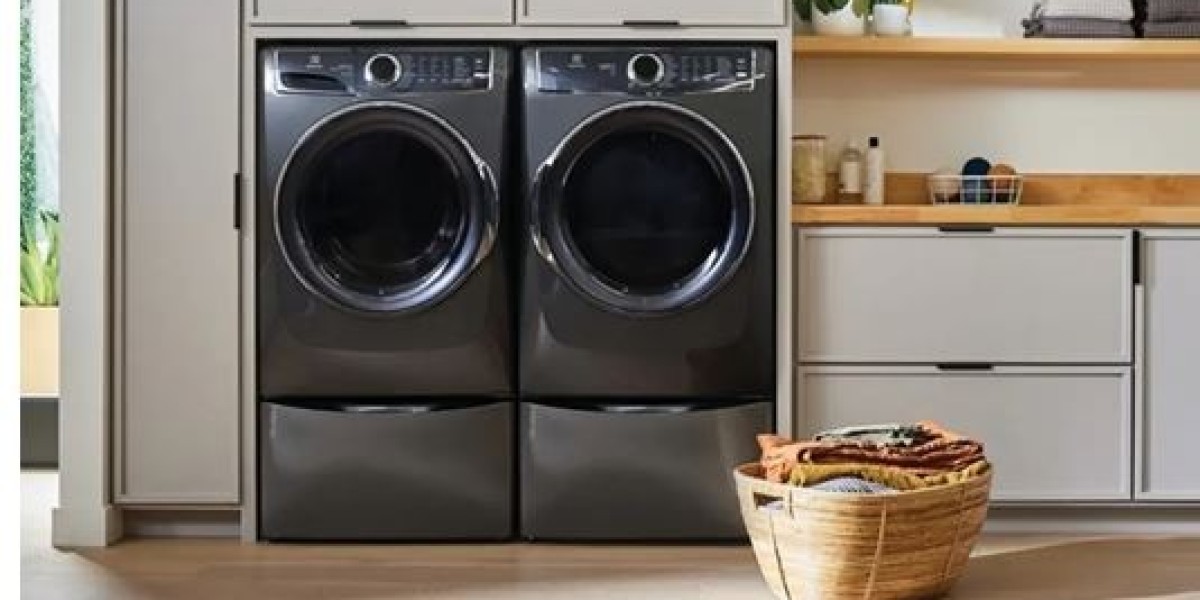keywords:
surge protector for washing machine and dryer
appliance surge protector for washing machine
washer surge protector
Link: https://www.avs30.com/voltage-protector/n-series/
In today’s fast-paced world, washing machines and dryers are essential household appliances that simplify our daily routines. However, like all electrical appliances, they are vulnerable to power fluctuations. One of the most effective ways to protect these devices from damage caused by electrical surges is by using asurge protector for washing machine and dryer. In this comprehensive guide, we’ll explore the causes of unstable voltage, why you need a surge protector, and how to choose the best appliance surge protector for washing machines.
1.What Causes Unstable Voltage in a Washing Machine?
Washing machines, like other electrical appliances, are sensitive to power fluctuations. The main reasons for unstable voltage in a washing machine include:
1.1Unstable Power Grid
The stability of thepower grid is a fundamental factor that directly influences the performance of household appliances, including washing machines. Power grids are subject to various fluctuations, which can be caused by factors such as weather conditions, equipment malfunctions, or demand overloads. These fluctuations typically manifest as overvoltage (voltage higher than normal) or low voltage (voltage lower than normal), both of which can interfere with the proper operation of appliances.
In particular,overvoltage can damage sensitive electrical components by causing them to overheat or burn out. On the other hand, low voltage can lead to inefficient operation, causing the washing machine to work harder to complete tasks, which in turn can cause wear and tear on internal parts like the motor and control board. Moreover, severe voltage fluctuations may even cause permanent damage to a washing machine, requiring expensive repairs or replacements. In fact, according to the International Electrotechnical Commission (IEC), electrical surges and instability are one of the leading causes of appliance damage, with more than 60% of electrical faults attributed to grid-related power issues.
1.2Overloading of Household Appliances
Another common cause of unstable voltage in washing machines isoverloading of household circuits. In many homes, multiple high-power appliances—such as washing machines, dryers, refrigerators, and air conditioners—are often plugged into the same outlet or circuit. When multiple devices operate simultaneously, they can exceed the circuit’s capacity, causing voltage fluctuations that negatively impact all the appliances connected to the circuit.
Washing machines, being high-power devices, are especially vulnerable to these fluctuations. During the washing cycle, especially when the motor kicks in or during the spin cycle, the washing machine demands a significant amount of power. If the power supply is unstable due to an overloaded circuit, it can lead topoor performance, frequent breakdowns, and the gradual degradation of internal components, such as the motor and electronic control board. Over time, this can result in costly repairs or even the need for a complete replacement of the washing machine.
1.3Washing Machine’s Internal Issues
In some cases, the cause of unstable voltage may not be external but internal, stemming from issues within the washing machine itself. One of the most common internal problems ispoor circuit design or faulty components that cannot handle the power demands of the machine. For example, a malfunctioning motor can draw inconsistent power, or a damaged circuit board may fail to properly regulate voltage, leading to instability.
Additionally, as washing machines age, their internal components may wear out or degrade.Old wiring or deteriorating electronic parts may not function as effectively as they did when the machine was new, exacerbating the problem of voltage instability. A worn-out capacitor or a failing power supply can also contribute to voltage fluctuations that disrupt the appliance’s operation.
In fact, a study fromConsumer Reports reveals that older appliances are more likely to suffer from internal faults that affect their performance, with 30% of washing machines over 5 years old requiring repairs related to electrical and power issues.
2.Why Does a Washing Machine Need a Single-Outlet Surge Protector?
Asingle-outlet surge protector for washing machineserves as a safeguard against power surges that could damage your appliance. Whether or not you need one depends on several factors, including the power requirements of your washing machine, the local electrical conditions, and the recommendations from the manufacturer.
2.1Washing Machine’s Power Load
Washing machines are considered high-power appliances due to their substantial power demands, particularly during startup. When the motor kicks in, it draws a large amount of electricity to get the drum moving. This surge in power can be significantly higher than the average power consumption during regular operation. According to the U.S. Department of Energy, typical washing machines use between 400 to 1,000 watts per load depending on the model, with the motor’s power consumption being one of the largest contributors during the initial startup phase. Because of these high power loads, it’s crucial to use a surge protector that is specifically designed to handle the energy requirements of large appliances. Standard surge protectors, often used for smaller electronics, are generally insufficient for these power demands and may fail to adequately protect your washing machine. These typical surge protectors are usually rated for much lower amperage and wattage, making them inappropriate for high-power appliances like washing machines. Surge protectors designed for washers are built to handle higher currents, typically in the range of 15-20 amps, which ensures that your washing machine remains safe from power surges that could potentially cause significant damage.
2.2Surge Protection in Power Surge-Prone Areas
In regions prone to power surges, lightning, or electrical storms, the risk of damage to electrical appliances, including washing machines, increases dramatically. According to the National Weather Service, lightning strikes are responsible for causing power surges and outages, especially in areas with frequent thunderstorms. These surges can send a spike of electricity through the home’s electrical system, which can overwhelm sensitive components. Even though washing machines might not have as many delicate electronic parts as devices like televisions or computers, power surges can still inflict damage on crucial components, such as the motor, electronic control boards, and wiring.
2.3Manufacturer’s Recommendations
It is always essential to refer to the manufacturer’s guidelines before purchasing a surge protector for your washing machine. Some manufacturers explicitly recommend using a surge protector to protect the appliance from voltage spikes, while others may caution against it if a surge protector could interfere with the machine's electrical components or operation. For example, some high-end washing machines come equipped with built-in surge protection to shield the internal electronics. In such cases, adding an external surge protector may not only be unnecessary but could potentially disrupt the machine’s performance. Additionally, some models may be designed with advanced circuit protection that can handle minor surges without external intervention.
3.Can You Use a Surge Protector with a Washing Machine?
Yes, you can use a surge protector with a washing machine. However, it's important to choose the right one, as not all surge protectors are designed for heavy-duty appliances like washing machines. Here’s what you need to know:
3.1Power Requirements of Washing Machines
Washing machines draw significant power, especially when the motor starts. Basic surge protectors that are typically used for small devices like computers or televisions are not designed to handle the high current or wattage required by washing machines. To properly protect your washing machine, you need a surge protector that can accommodate the appliance's high power consumption.
3.2Surge Protector Ratings
When selecting a surge protector, it's crucial to look for one rated forhigh-powered appliances. This means it should have a higher joule rating (a measure of the energy it can absorb from a surge) and a higher amperage capacity to handle the electrical load.
For a washing machine, look for a surge protector with ajoule rating of at least 1000 and a 15-amp rating. These ratings ensure that the surge protector can handle the power spikes and provide adequate protection for your appliance.
3.3Manufacturer Guidelines
Check the owner’s manual for your specific washing machine to ensure compatibility with surge protectors. Some models may already have built-in surge protection or features designed to handle voltage fluctuations, making an additional surge protector unnecessary. If the manual advises against using one, it’s best to follow the manufacturer’s instructions to avoid voiding warranties or damaging the appliance.
Summary:
l Ensure the surge protector is designed forhigh-powered appliances.
l Always check themanual for recommendations and compatibility.
l Use a surge protector with ajoule rating of at least 1000 and a 15-amp rating for optimal protection.
4.How Many Joules Should a Surge Protector Have for a Washing Machine?
Thejoule rating is an important factor to consider when selecting a surge protector for your washing machine. The joule rating indicates how much energy the surge protector can absorb before it becomes ineffective. For high-power devices like washing machines, it is essential to choose a surge protector with a high joule rating.
4.1Recommended Joule Rating
For most modern washing machines, a surge protector with aminimum joule rating of 1000 joules is typically sufficient to provide protection against common electrical surges caused by activities like the switching on/off of nearby appliances or brief voltage spikes in the local power grid. This level of protection is adequate for areas where power surges are relatively infrequent and not severe.
However, in regions wherepower fluctuations, lightning storms, or frequent voltage surges are common, it is highly recommended to select a surge protector with a higher joule rating of 2000 joules or more. According to the National Electrical Manufacturers Association (NEMA), appliances in regions with unstable power grids are at higher risk of damage, and a surge protector with a higher joule rating can offer stronger protection against more significant power surges, preventing costly repairs or replacements of sensitive components such as motors and electronic control boards.
4.2Why Higher Joule Ratings Are Important
A surge protector with a higher joule rating can absorb more energy from a power surge before it begins to deteriorate. Over time, repeated surges, even if minor, can wear down the surge protector’s ability to provide adequate defense. For example, a surge protector with ajoule rating of 1000 joules might be effective for a single large surge but could fail after multiple smaller surges.
According to a study byUnderwriters Laboratories (UL), surge protectors with lower joule ratings tend to wear out quickly and lose their protective abilities after absorbing multiple surges. If the joule rating is too low, the surge protector may fail after just a few power surges, leaving your washing machine vulnerable to future electrical damage. In contrast, higher-rated surge protectors continue to offer strong protection across multiple power spikes, extending their lifespan and reducing the risk of costly appliance damage.
4.3Other Considerations
While the joule rating is one of the most important factors, there are several other key specifications that should be taken into account when selecting a surge protector:
l Amp Rating:Ensure the surge protector is rated to handle at least 15 amps, as this is the standard for most household appliances. The surge protector must be capable of handling the current your washing machine requires without overloading.
l Clamping Voltage:This is the voltage at which the surge protector will start to absorb the surge. A lower clamping voltage means that the surge protector will react faster to electrical spikes, providing more immediate protection to your appliance. Typically, a clamping voltage of 400 volts or less is recommended for washing machines.
l Response Time:The response time is the amount of time it takes for the surge protector to react to a voltage spike. A surge protector with a fast response time (typically in the range of 1 nanosecond) will activate quicker, limiting the amount of time your washing machine is exposed to dangerous power fluctuations.
For optimal protection of your washing machine, it is recommended to choose a surge protector with ajoule rating of at least 1000 joules. This ensures that your appliance will be shielded from minor power fluctuations. However, for areas with frequent power surges, thunderstorms, or other sources of large electrical spikes, opting for a surge protector with a rating of 2000 joules or higher will offer the best defense, prolonging the life of your washing machine and reducing the risk of costly repairs or replacement. Always remember to check other important specifications, like amp ratings, clamping voltage, and response time, to ensure comprehensive protection.
5.Conclusion: Is a Surge Protector for Your Washing Machine Worth It?
In conclusion, using asurge protector for washing machine and dryer is a smart and essential step in protecting your appliances from electrical surges that can cause costly damage. When selecting a surge protector, consider factors such as the joule rating, amp rating, and manufacturer recommendations. Whether you live in an area with frequent power surges or simply want to safeguard your appliance, investing in the right surge protector can help extend the life of your washing machine and keep it running smoothly.
By following these guidelines, you can ensure that your washing machine stays protected from electrical issues, reducing the risk of costly repairs and ensuring a longer lifespan for your appliance. Always consult with an electrician or refer to your washing machine’s user manual for the most accurate recommendations.








